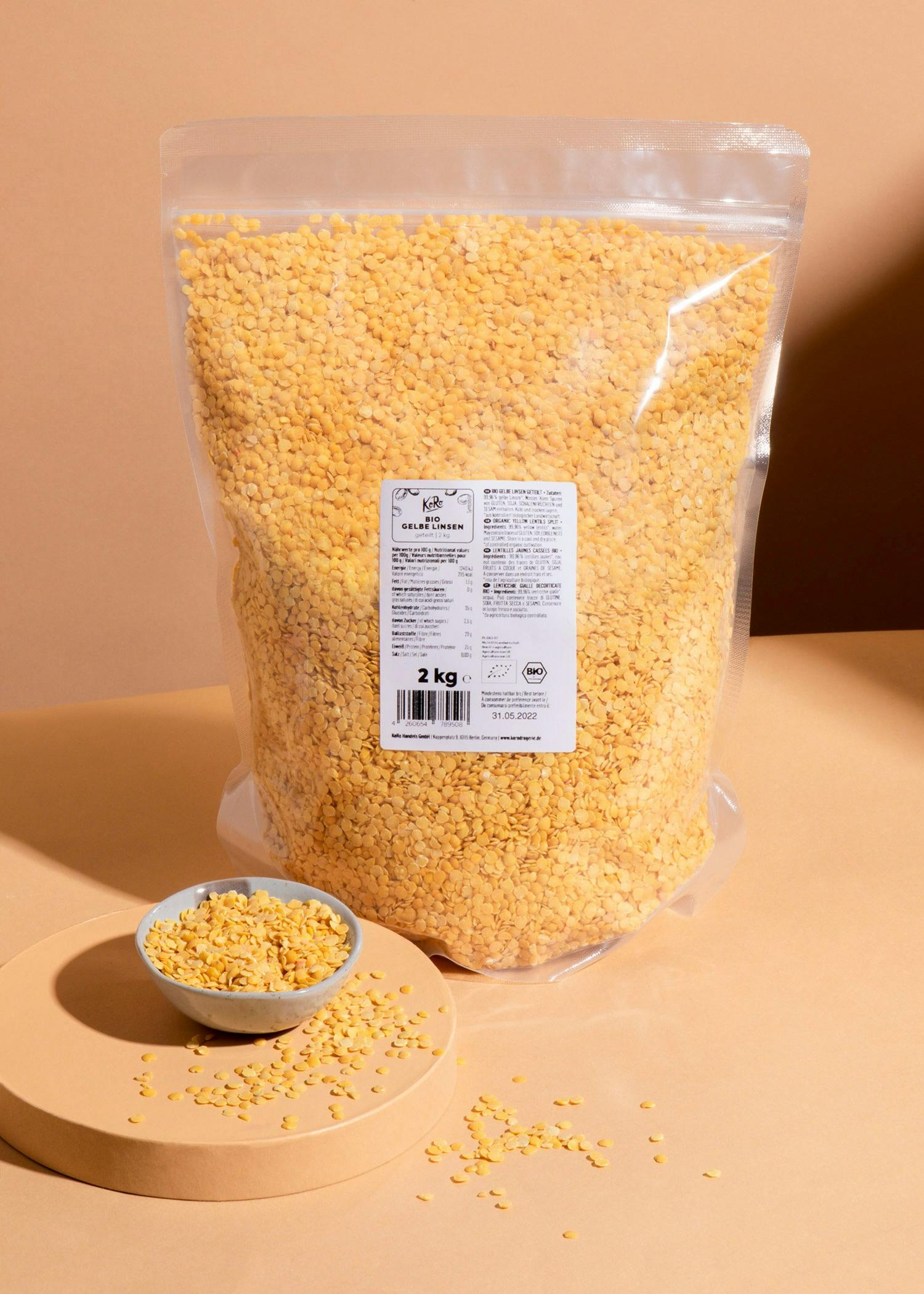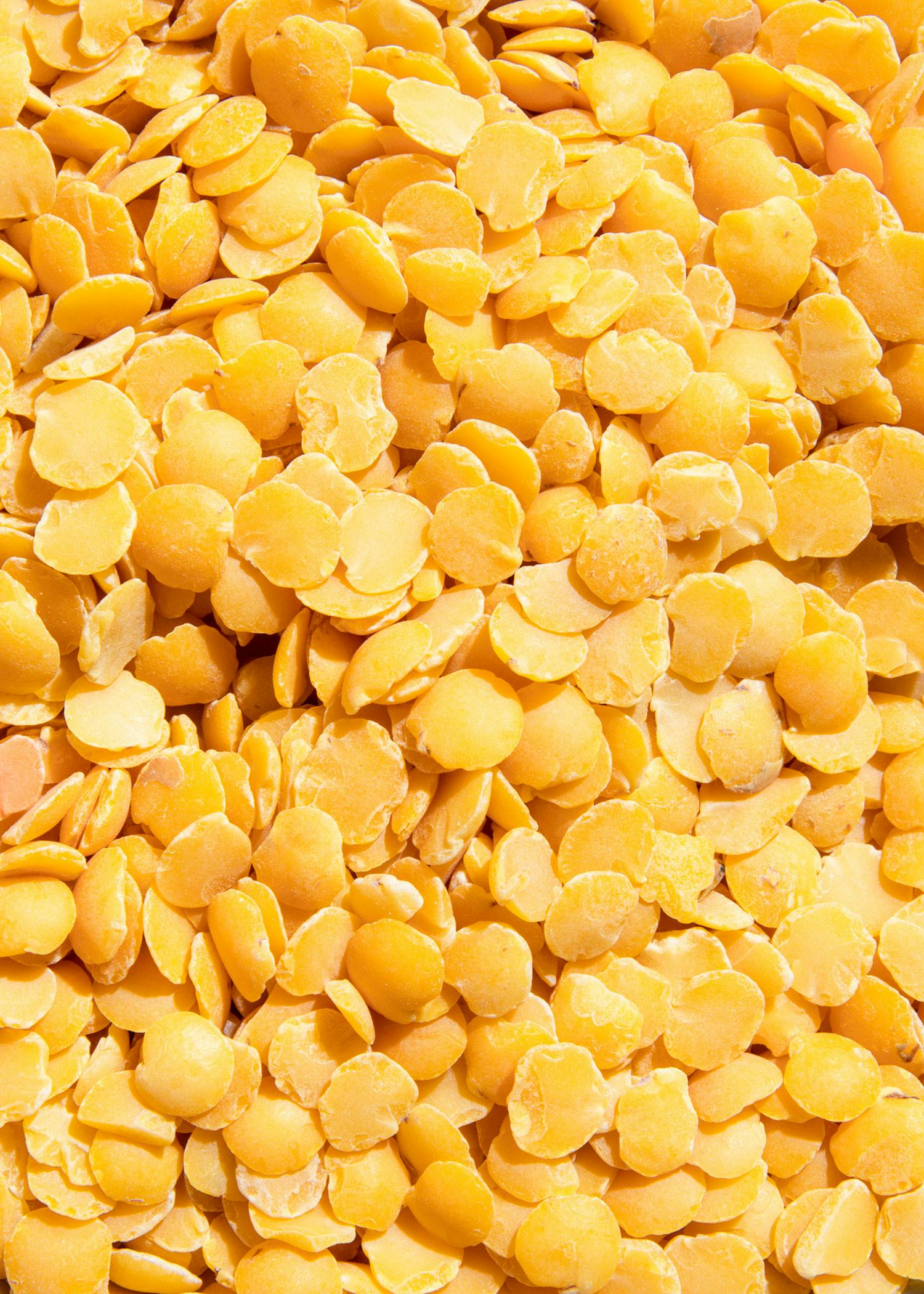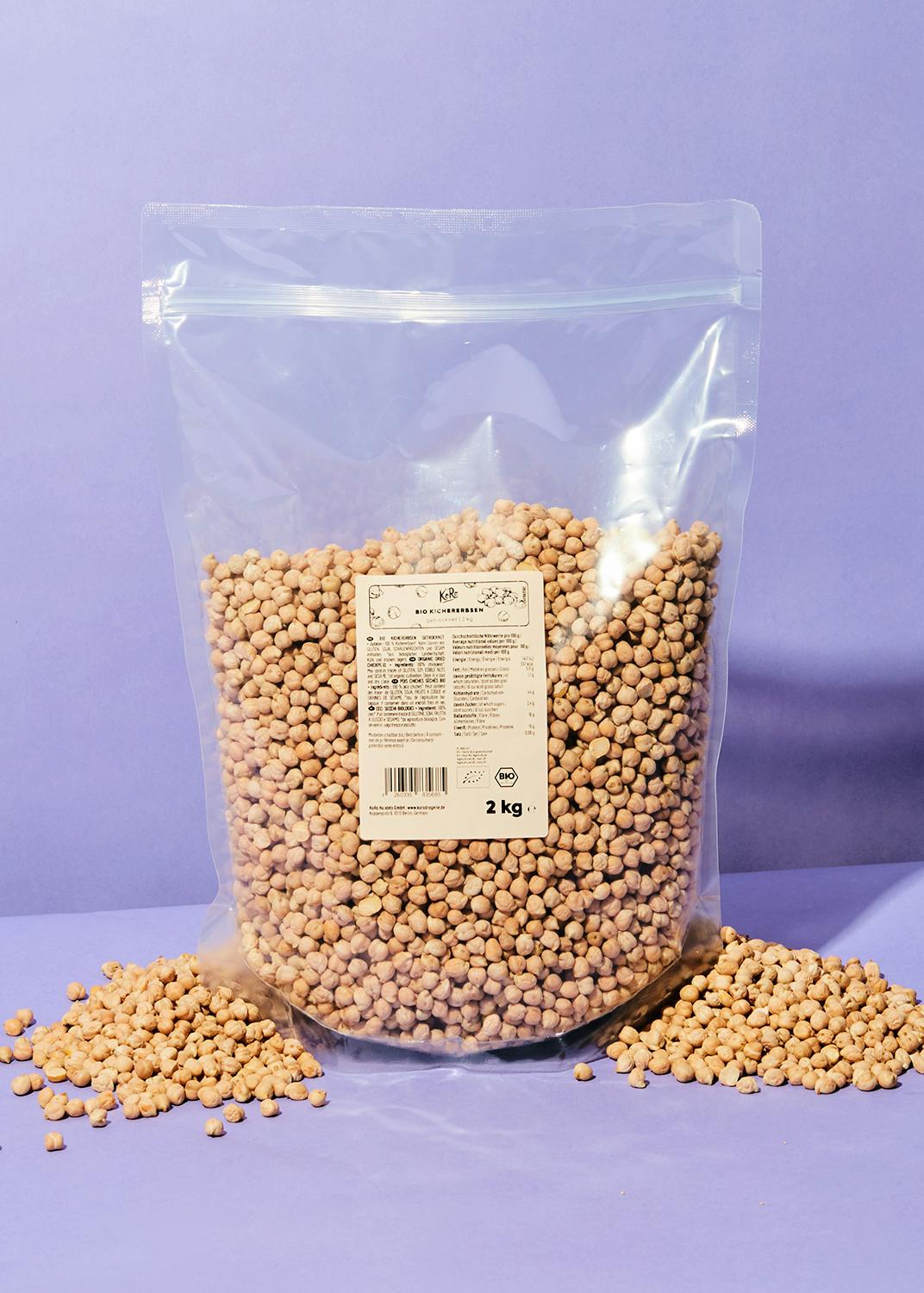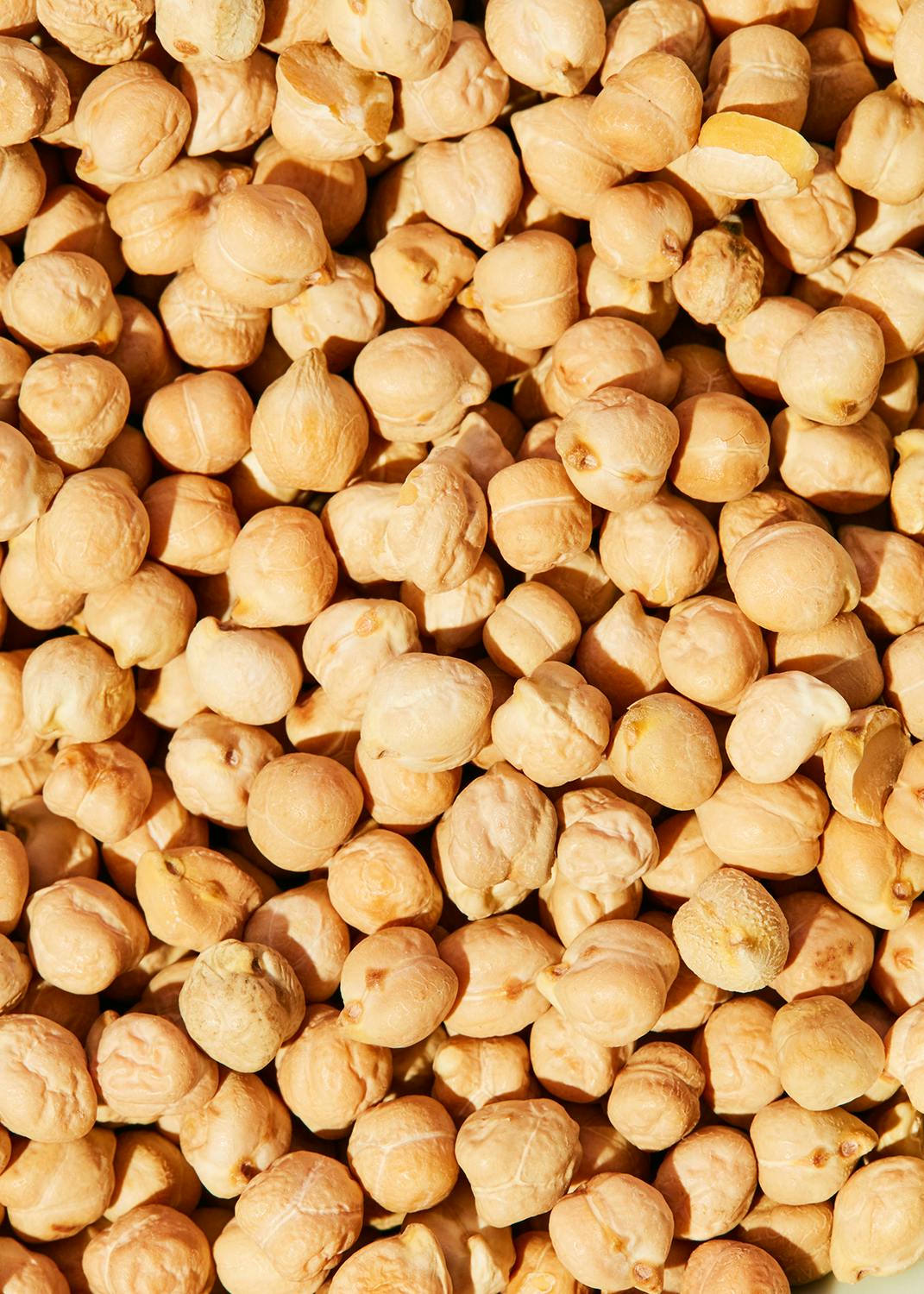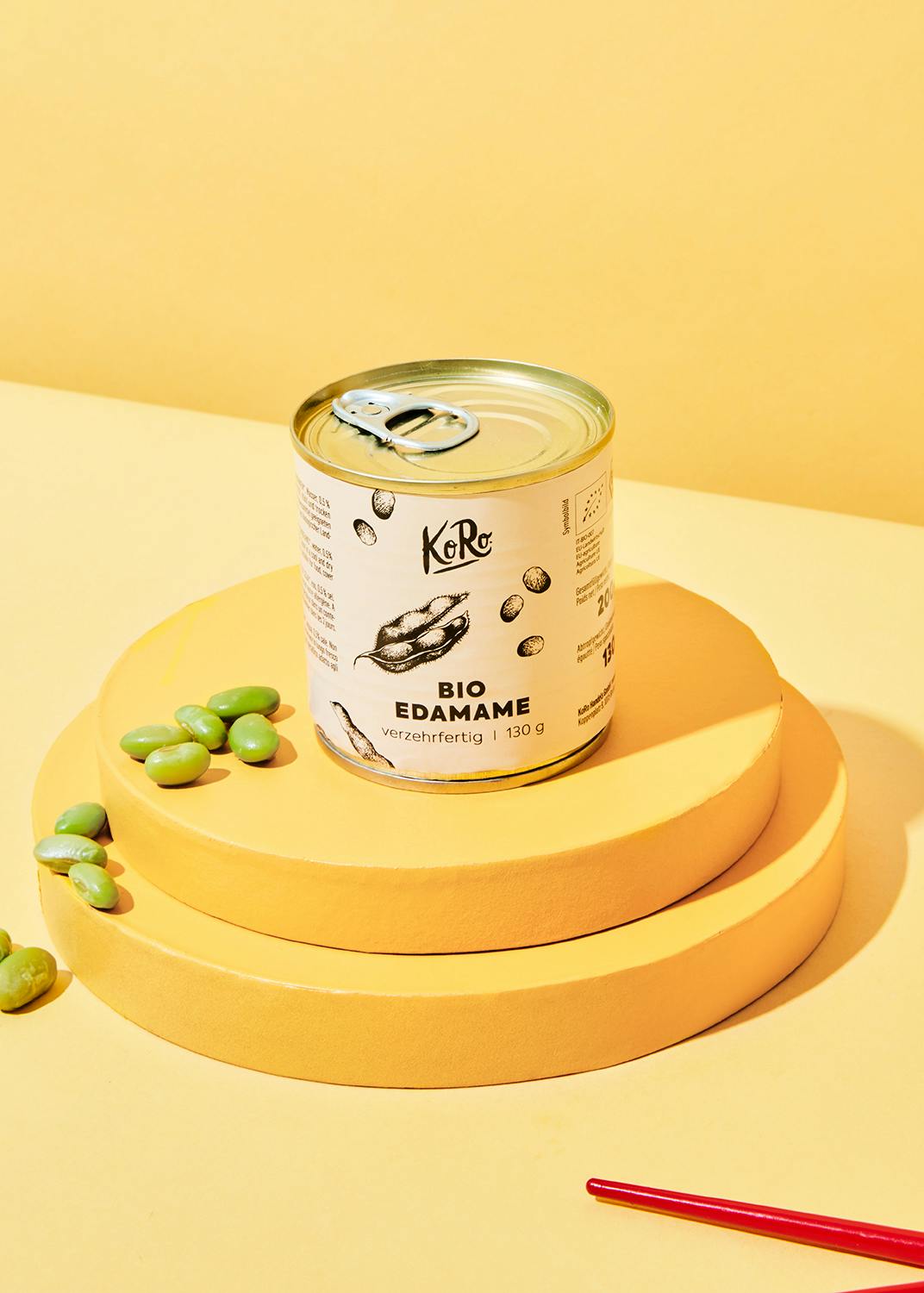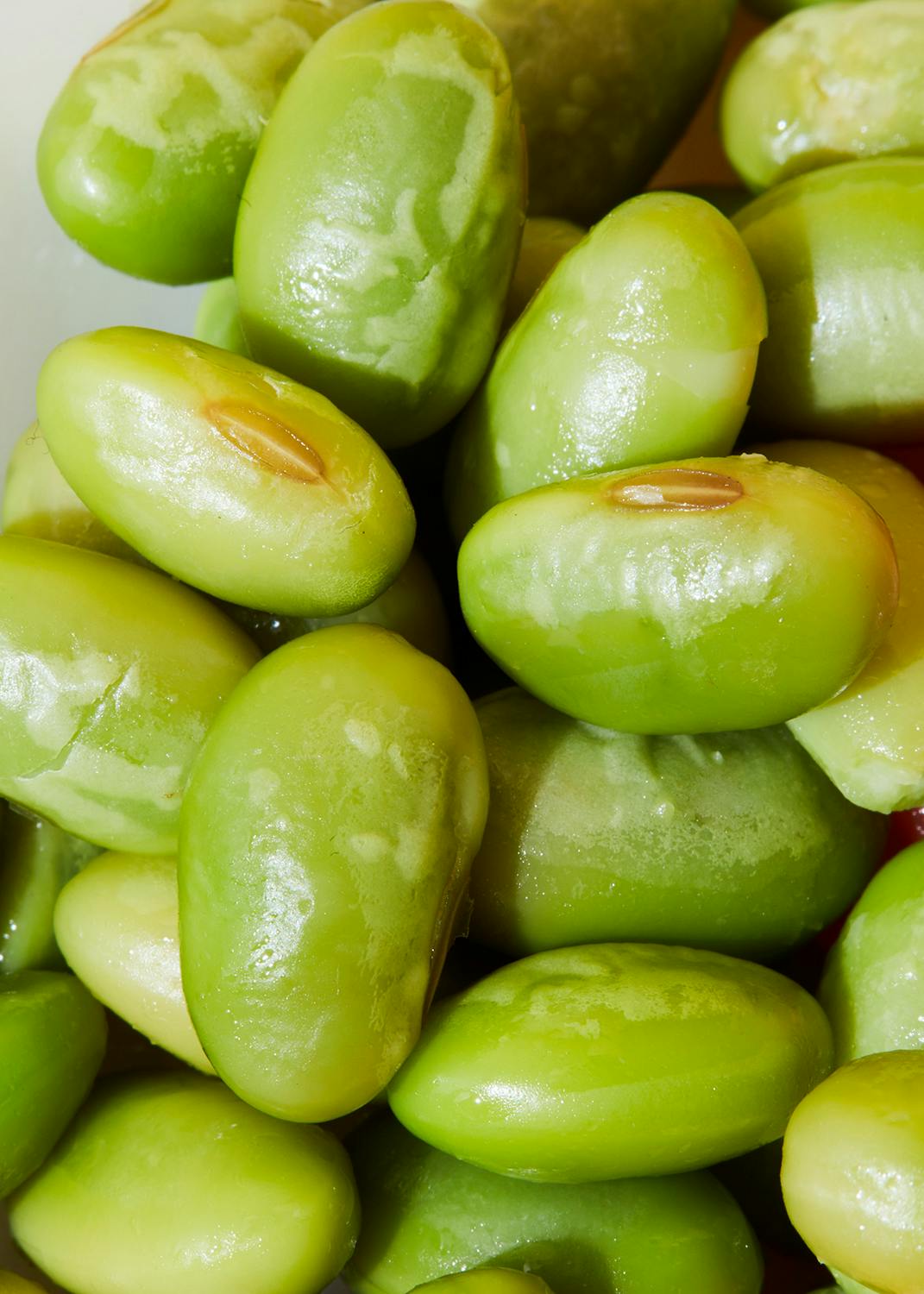The origin of the soybean: between tradition and innovation
Soy has been a staple food in Asia for centuries. The protein-rich bean is processed into tempeh or tofu, for example. Nowadays, it is also indispensable in Europe and is processed in a variety of ways into vegan products. Soybeans can accompany you throughout the day: from crispies or flakes for breakfast to soy bolognese for lunch and a soy-rice bowl with soy sauce for dinner. And of course, snacks are also a must: They come in the form of roasted soybeans, crackers, bars or protein powder. The last two in particular are also popular among athletes, as they provide you with an extra portion of protein. But be careful: too much soy can cause bloating!
Benefits of the soybean
When dried, soybeans have 38 g of protein per 100 g. During processing, the protein content usually decreases as other ingredients or water are added. Tofu, for example, only has around 12 g of protein - although the vegan all-rounder is still an ideal source of protein. In contrast to many other plant-based protein sources, soy has a very good biological value. This somewhat unwieldy term describes the efficiency with which the body can utilize proteins from food. Normally, the biological value of animal protein is higher than that of plant protein. However, the soybean comes very close to the biological value of a chicken egg and provides you with all the essential amino acids. Jackpot!
In addition, soy contains polyunsaturated fatty acids, fiber, phytochemicals, vitamin C and folic acid as well as the minerals magnesium, iron, potassium and zinc. That's really something! But there's more: numerous studies show that eating soy can possibly lower cholesterol levels and reduce the risk of developing various types of cancer. These include prostate, stomach and lung cancer. The risk of cardiovascular disease, which is responsible for around 40% of deaths in Germany, can also be reduced by soybeans with their numerous ingredients. Of course, it is not only soy consumption that plays a role here, but also the rest of the diet, exercise, smoking and alcohol consumption. However, in countries where soy is part of the daily diet, the risk of disease is much lower than in our western regions.
Despite these benefits, some myths persist, which is why many people are skeptical about soy. We want to debunk a few myths here so that you can enjoy your next KoRo bar with soy crispies without any dangerous half-knowledge at the back of your mind.
Myth 1: The rainforest is being cut down for soy
According to the WWF, soy production increased from around 27 million tons in 1960 to almost 360 million tons in 2018/19 - crazy! These huge quantities need space. To be more precise: 125 million hectares, which is roughly three times the area of Germany. To create this space, large areas of rainforest in South America are being cleared for soy plantations. This has an impact on climate change, as a lot of CO2 is released and habitats for plants and animals are lost. The resulting prejudice: Tofu destroys the rainforest! However, a quick glance at the packaging reveals the fake news, as the manufacturers commonly used in Germany generally use soy from Europe. What's more: Only two percent of the soy harvest is actually processed into tofu, soy drink and the like. Most of the rest is used as animal feed in intensive livestock farming or is processed into soybean oil. This in turn is an ingredient in cosmetics or biofuel.
Myth 2: Soy protein causes breast cancer
Attentive readers of the INSERT already know them: secondary plant substances. They can have a positive effect on your health and, above all, provide preventative protection against diseases. Soybeans also contain secondary plant substances - the so-called isoflavones. They belong to the group of phytoestrogens and this is where the prejudice begins! As the name suggests, phytoestrogens are similar to the body's own sex hormone oestrogen. Just like oestrogen, phytoestrogens can also bind to oestrogen receptors. Studies that show adverse effects are often based on cell cultures or animals that have been treated with isolated isoflavones. A quick reality check: This cannot simply be transferred to humans and certainly not to the consumption of a portion of tofu or a glass of soy drink a day. This is because the isoflavones are present in the whole food and not in high doses and in isolation. This is why the major cancer and nutrition societies agree: the consumption of soy products does not pose a risk for the development of breast cancer and women with breast cancer can also enjoy moderate amounts of soy without concern.
Myth 3: Soy protein lowers testosterone levels in men
All good things come in threes: soy protein is said to "feminize" men! First of all, what does that even mean? Many people probably think directly of clichés such as becoming emotional or being less broad. But come on: It's 2023 - this discussion really should finally stop! From a biological point of view, however, things look a little different, as there are typical male and female characteristics. The Y chromosome and the male sex hormone testosterone control the development of male genitalia. And sperm are obviously also a male thing. It is precisely these two things, sperm production and testosterone levels, that the consumption of soy is supposed to have a negative effect on. But: Fortunately, this is fake news! The hormonal effect has only been shown in high-dose preparations in animal experiments. Human studies have not yet been able to prove these effects. Negative effects have only been observed in two individual cases who consumed very large quantities of soy products over a long period of time. So there is definitely nothing to stop you enjoying one or two soy products from the KoRo range every day! And even if you take advantage of the full range for a day, the first thing that happens is: nothing at all!
As you can see, many prejudices are not scientifically proven and sometimes the opposite is actually the case. So feel free to indulge in the various soy treats on a regular basis! Just keep in mind: the less processed the product is, the greater the benefits, as you benefit from soy in its pure form without any additives. And: variety is important! So try out the other delicious protein sources from the KoRo range, e.g. chickpeas, edamame, yellow lentils or - very fancy! - lasagne sheets made from red lentils. Incidentally, these are also ideal alternatives for the few people who really should avoid soy: namely those with a soy allergy. Everyone else can enjoy the delicious variety of soy without hesitation!
